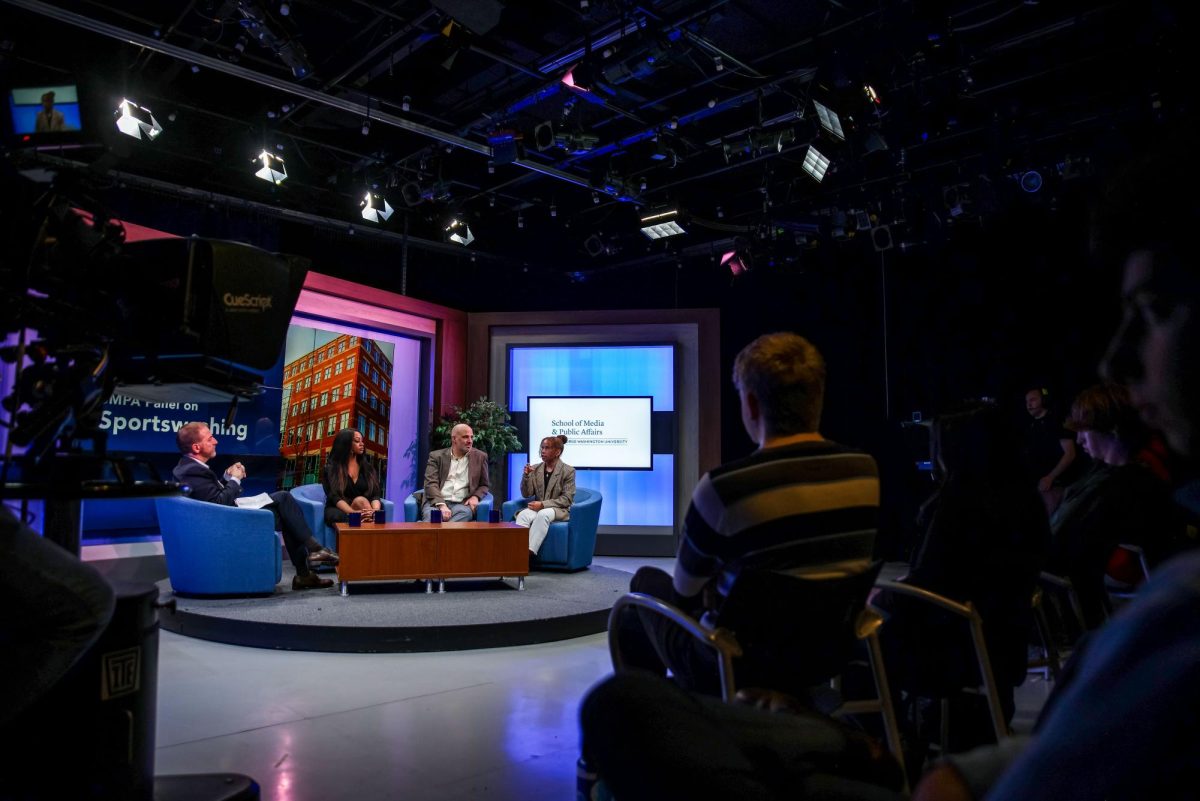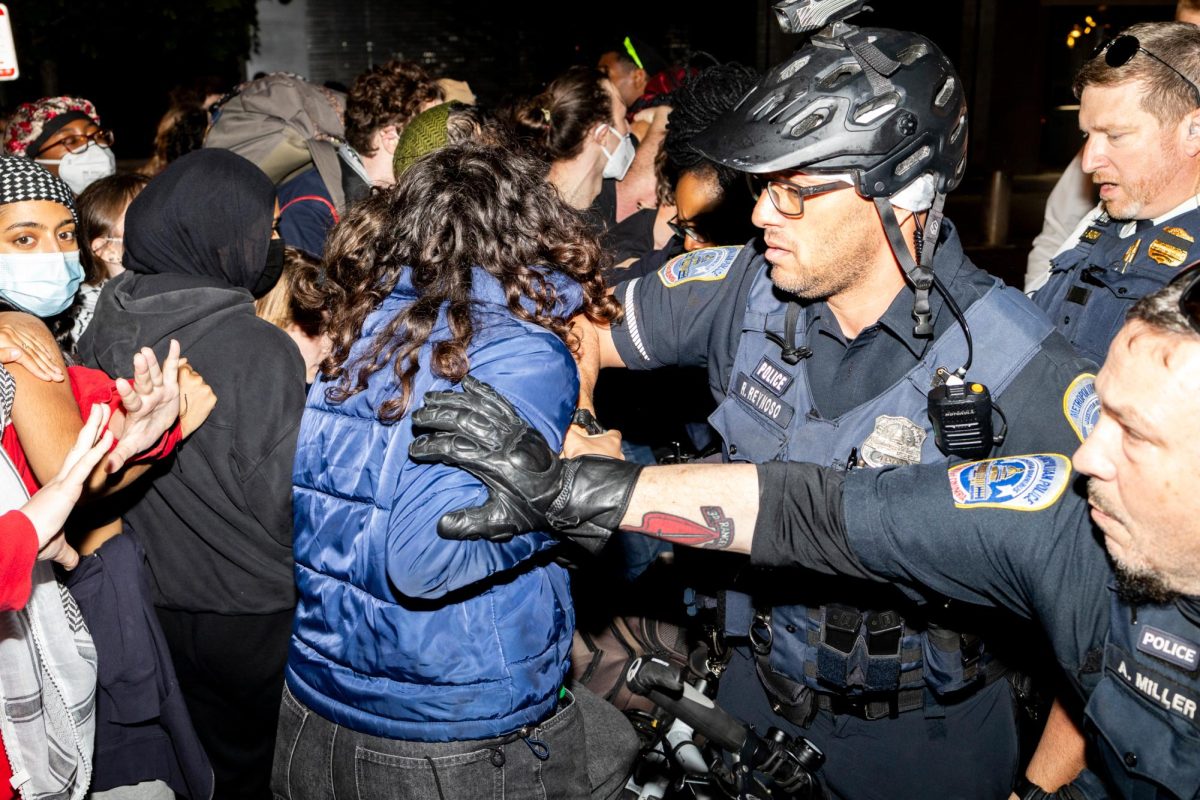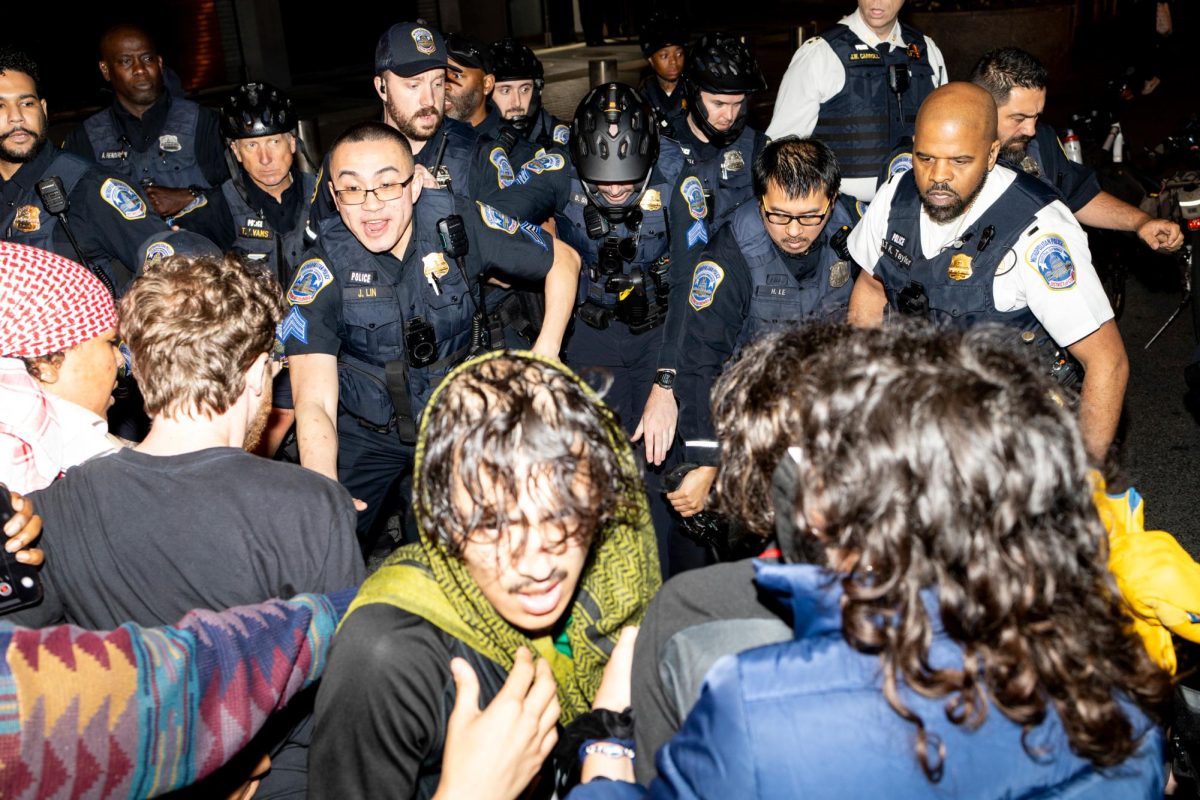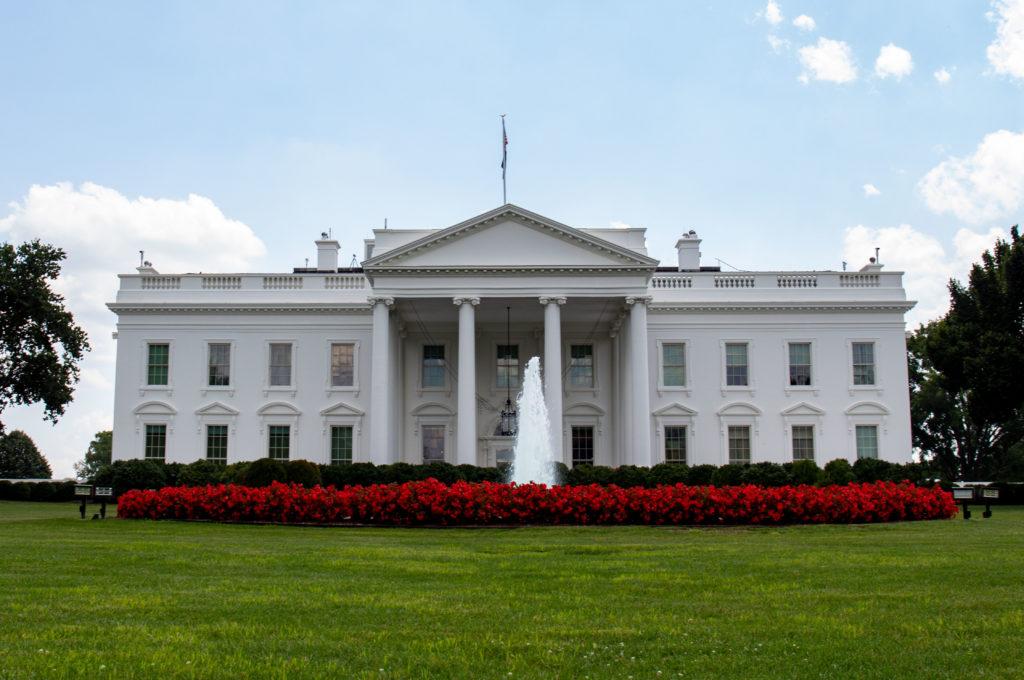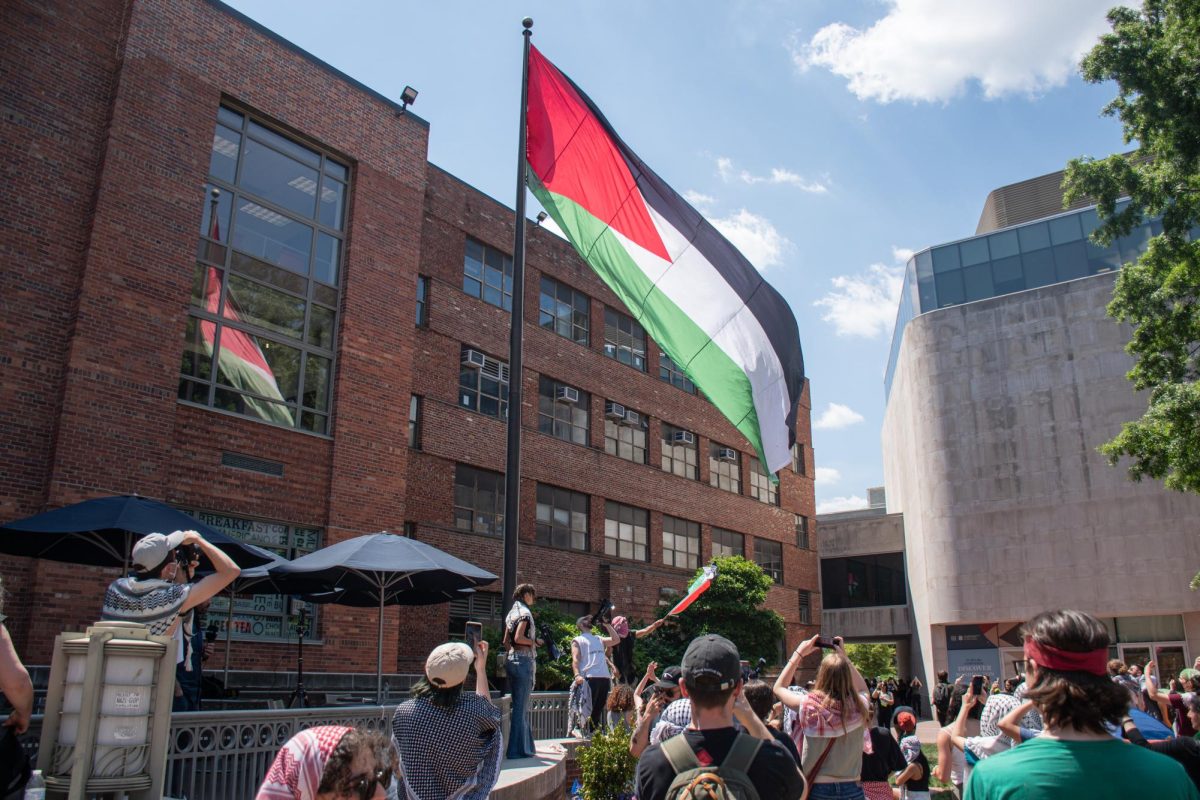Two professors and a student discussed sportwashing, or countries’ use of sports to boost their reputation, at the School of Media & Public Affairs on Tuesday.
Sports reporter and lecturer Kelsey Nelson, associate professor William Youmans and SMPA sophomore and women’s soccer player Avril Silva discussed their perceptions and the consequences of sportwashing. NBC News Chief Political Analyst Chuck Todd moderated the event, which was hosted by SMPA.
Todd said authoritarian states like Qatar and Russia — who hosted the 2022 World Cup in Qatar and the 2014 Winter Olympics, respectively — have used athletic events to influence other nations and elevate their global image. He said while sportwashing has many consequences, it is a “good controversy” because it forces people to discuss issues like human rights and authoritarian countries’ influence globally.
“It allows us to have the more honest conversations about our values, whether it’s ours, the globe’s values, another country’s values,” Todd said.
Youmans, who is an expert in Middle Eastern politics and society, said sportwashing can also refer to the act of countries deflecting criticism and generating “prestige.” He said sportwashing can lead to “parachute journalism” where journalists engage in a “feeding frenzy” around issues in a given country without an acknowledgement of its history or an extensive expertise on local issues.
“The issues that media tend to focus on, to me, aren’t always the most important issues, because they don’t have the knowledge of the background of these places to really understand what’s going on,” Youmans said.
Youmans said authoritarian nations have the money and control to facilitate large sporting events and curate a “fan experience” that is favorable to sports enthusiasts.
“There’s some things about fan experience that sometimes authoritarian regimes are slightly better at,” Youmans said. “Crime is always very low, the trains always run on time, the homeless people are put out of sight. Fan experience is not about democracy. Fan experience is about a well-ordered society.”
Nelson, who is also a lecturer at SMPA, said the Olympics is a “perfect example” of a sportwashing-prone event because it raises concerns surrounding the host country. She said sports events are one of the few moments where people come together around a shared cause and can expose injustices, like how preparation for the 2012 Summer Olympics in London exposed the displacement of homeless individuals and immigrant communities. She said journalists need to ask questions about the experiences of people in countries beyond the sporting events that occur in their nation.
“What happens once the games end?” Nelson said. “What happens once the cameras are gone, once the reporters are gone, once the whole beat that was there is now gone? I think that’s kind of why this panel is so important because it’s going to keep happening.”
Silva, who is also on the Venezuelan women’s national team, said professional athletes are using their platforms to shed light on human rights abuses and inequities. She said being on the Venezuelan women’s national team provides her with a platform to speak out on issues like Venezuela’s humanitarian crisis, which is affecting her family members in the country.
Silva said while Gulf state teams entice players like French soccer star Karim Benzema with large paychecks, she would have to assess the consequences of playing on a team with “questionable ties.” Activists at the time criticized Qatar as the location for the 2022 World Cup for its ban on same-sex relationship and failure to investigate thousands of migrant deaths.
“Where is the money going? What ties, what relationships do I want to have behind me when I’m looking forward?” Silva said.


